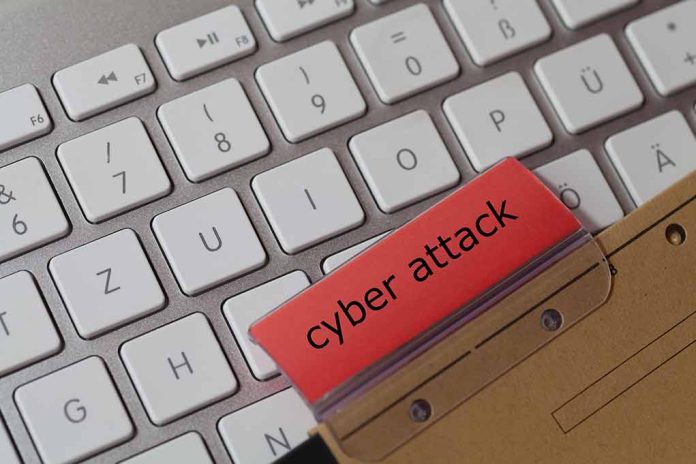
The United States government has condemned China for a sophisticated cyberattack on the Czech Republic’s Foreign Ministry, highlighting Beijing’s growing pattern of aggressive cyber espionage targeting Western allies.
Key Takeaways
- Czech Republic officials have directly accused China of orchestrating cyberattacks on their Foreign Ministry’s communication networks, specifically linking the APT31 hacking group to China’s Ministry of State Security.
- The cyber campaign began in 2022, targeting critical Czech infrastructure and forcing the implementation of new communication systems.
- The United States, NATO, and European Union have all condemned the attack, with the US urging China to adhere to international cybersecurity norms.
- The Czech Foreign Minister summoned China’s ambassador to Prague, emphasizing that these actions severely damaged bilateral relations.
- China’s Embassy in Prague has dismissed all accusations as “groundless,” despite mounting evidence from multiple intelligence sources.
Chinese Digital Aggression Against NATO Ally
The Czech Republic has taken the extraordinary step of publicly accusing China of conducting cyberattacks against its Foreign Ministry’s communication infrastructure. According to Czech officials, the attacks began in 2022 and were carried out by APT31, a sophisticated hacking group with direct ties to China’s Ministry of State Security. This digital infiltration targeted critical systems, compromising sensitive diplomatic communications and forcing Czech authorities to implement entirely new communication networks as a defensive measure.
Czech Foreign Minister Jan Lipavský responded with decisive diplomatic action, summoning China’s ambassador to Prague to address these serious allegations. The Czech government left no ambiguity about its position on the matter, issuing a formal condemnation that highlights the breach of international norms and the damage to bilateral relations. While the specific information compromised remains classified, security experts note that diplomatic communications frequently contain sensitive intelligence, policy positions, and national security information.
“The government of the Czech Republic strongly condemns this malicious cyber campaign against its critical infrastructure. Such behavior undermines the credibility of the People’s Republic of China and contradicts its public declarations,” said Foreign Minister Jan Lipavský.
United States Leads International Response
President Trump’s administration has taken a strong stance against these cyber aggressions, with the US Bureau of Cyberspace and Digital Policy condemning the attack and calling for China to adhere to responsible behavior in cyberspace. The US Embassy in Prague released detailed information about the APT31 group’s history of targeting American and allied interests, demonstrating that this is part of a broader pattern of Chinese cyber espionage rather than an isolated incident. This robust American response reflects the administration’s commitment to holding China accountable for its increasingly aggressive actions.
“This is another instance of harmful cyber activity originating from APT31, and we urge China to behave responsibly in cyberspace, adhering to its international commitments,” stated the US Bureau of Cyberspace.
NATO and the European Union have joined in expressing solidarity with the Czech Republic, emphasizing that such attacks represent a threat to the collective security of Western nations. The EU’s foreign policy chief, Kaja Kallas, has labeled the attack as an unacceptable breach of international norms, underscoring the growing concern among European leaders about China’s willingness to target democratic institutions. This unified response demonstrates the strength of transatlantic alliances in the face of increasing cyber threats.
China’s Denial Contradicts Evidence
Despite the detailed technical evidence and the consensus among multiple intelligence agencies, the Chinese Embassy in Prague has categorically denied all accusations. Their statement claiming China “fights all forms of cyber attacks and does not support, promote or tolerate hacker attacks” stands in stark contrast to the growing body of evidence documenting Chinese state-sponsored cyber operations. Security experts point out that APT31 has a well-documented history of sophisticated operations that require state-level resources and direction.
“The Chinese Embassy dismissed the Czech accusations as ‘groundless.’ It said China fights ‘all forms of cyber attacks and does not support, promote or tolerate hacker attacks,” according to the Chinese Embassy in Prague.
This is not the first time the Czech Foreign Ministry has been targeted by sophisticated cyber operations. A similar attack in 2017 compromised their systems, though at that time officials did not publicly attribute the breach to any specific nation. The willingness of Czech authorities to now directly name China as the responsible party signals a significant shift in how Western democracies are responding to digital aggression. Rather than quietly managing such incidents behind closed doors, more nations are choosing to publicly expose and condemn these violations of sovereignty.





